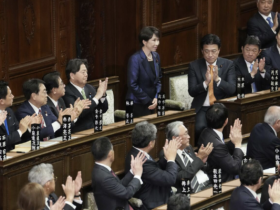KUALA LUMPUR, Aug 26 — Malaysia must take decisive steps now to lead as the region’s hub for the next-generation semiconductors, with global revenues projected to exceed US$1 trillion (RM4.2 trillion) by 2030, said Finance Minister II Datuk Seri Amir Hamzah Azizan.
He noted that Malaysia contributes 13 per cent to the global semiconductor testing and packaging sector, and commands over 7 per cent of the global semiconductor market share.
The minister highlighted a recent strategic collaboration with ARM, a global leader in chip architecture powering over 250 billion devices, as a major step in transforming Malaysia’s semiconductor industry into a high-growth, high-value sector.
“This collaboration will strengthen global integration, boost local capabilities, expand artificial intelligence (AI) and chip innovation, and create high-skilled jobs,” he said in his keynote address at the Malaysia Semiconductor Industry Association (MSIA) Merdeka Annual Dinner Celebration last night.
Also present at the event was MSIA president Datuk Seri Wong Siew Hai.
According to Amir Hamzah, the semiconductor sector alone has attracted RM480 million in catalytic partnerships — Khazanah Nasional Bhd’s collaboration with Cambrian Fund supports local entrepreneurs and small and medium enterprises in IR4.0 technologies, while its investment in Syntiant — a global AI leader — is bringing world-class AI research and development to Malaysia.
“The Retirement Fund Inc (KWAP) has also committed RM350 million in Asian semiconductor-focused funds that intend to support the growth of local firms’ export capabilities and attract leading global players to Malaysia.
“These are proof points that our government-linked investment companies (GLICs) are mobilising to support Malaysia’s vision to realise the National Semiconductor Strategy (NSS),” he added.
Meanwhile, he also launched the Industrial Skills Framework for Semiconductor by Human Resource Development — a strategic move to strengthen the semiconductor talent pipeline.
“I am hopeful that these innovations and workforce upskilling initiative will further future-proof Malaysia’s competitiveness in this fast-evolving industry,” Amir Hamzah said.






















Leave a Reply